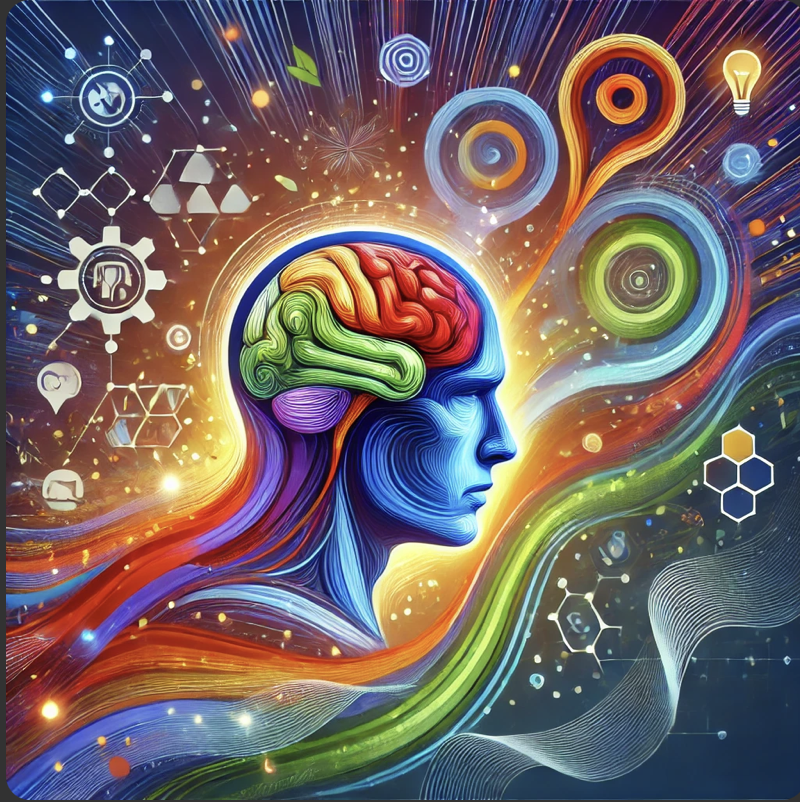Higher Vibes Coaching Blog

ADHD vs. Autism: Key Differences, Overlapping Traits, and How to Get the Right Diagnosis
ADHD and autism share traits like masking, sensory overload, and social exhaustion, but they are distinct neurotypes (even though there is often an overlap). Learn how to tell the difference, why ADHDers may seem autistic, and how to get an accurate diagnosis.

From Invisible to Unstoppable: How to Be a Thought Leader Without Masking
Struggling to gain visibility despite being an expert in her field, Tara felt shut out on social media. This case study reveals how coaching helped her transform her approach, build influence on her own terms, and land industry recognition—without chasing validation. It also includes tips to help you reframe feeling too different as an advantage, not a liability.

5 ADHD Coaching Mistakes That Sabotage Progress (And What to Do Instead)
Coaching ADHD clients isn’t just about productivity hacks—it’s about understanding how their brains actually work. Here are five common coaching mistakes that can backfire, plus smarter, ADHD-friendly strategies that lead to real results

10 Tips to Help ADHD Students Stay on Track When Home Life is Chaotic
When there’s a lot going on at home—whether it’s loud siblings, family stress, or constant distractions—staying focused can feel impossible, especially for students with ADHD. But with the right strategies, you can create a sense of control and structure, even in a busy environment. Here are 10 practical tips to help ADHD students stay on track. Not every tip will be a perfect fit, so experiment and see what helps the most. ADHD brains thrive with structure, movement, and rewards, so keep things simple, flexible, and fun!

Three Easy Ways for Teens with ADHD to Stay Organized
If you identify with ADHD, staying on top of school projects and goals can feel impossible. Long to-do lists get overwhelming, deadlines sneak up, and sometimes, your brain just doesn’t want to start. But don’t worry—you don’t need a complicated planner or strict schedule. You just need a system that works for your brain. Here are three simple and ADHD-friendly ways to stay organized for short-term, mid-term, and long-term projects.

Eating Disorders, ADHD & RSD…Oh My!
ADHD, rejection-sensitive dysphoria (RSD), and eating disorders often intertwine, creating a relentless cycle of perfectionism, emotional dysregulation, and distorted self-perception. Learn how these overlap and some actionable coaching strategies to start to break free from this cycle.

5 ADHD Brain Hacks Using NLP: Boost Focus, Motivation & Stop Overthinking
Struggling with ADHD procrastination, focus issues, or mental spirals? These five ADHD-friendly NLP techniques will help you rewire your brain for motivation, stop overthinking, and activate hyperfocus on command—without forcing yourself into a neurotypical productivity mold.

Why Getting an Adult ADHD Diagnosis Is Tough (And What to Do About It)
For many adults, the journey to an ADHD diagnosis is both frustrating and liberating—it provides long-awaited answers but also reveals the barriers to treatment and support. From struggling with focus, procrastination, and emotional overwhelm to navigating the complexities of online diagnosis and access to care, this guide explores why getting diagnosed is so difficult, what prompts adults to seek answers, and how to find the right resources for treatment.

ADHD Burnout: Signs, Causes, and How to Recover
Burnout isn’t just needing a break—it’s a full-body and mental shutdown that makes it hard to function at work, home, and beyond. For those with ADHD, burnout can hit even harder due to chronic overwhelm, emotional exhaustion, and executive dysfunction. Learn the key signs of ADHD burnout, why it happens, and actionable strategies to recover and prevent it from taking over your life.

What Can Make ADHD Symptoms Worse?
While ADHD presents unique challenges, external factors can intensify symptoms, making daily life feel even more overwhelming. This guide explores what worsens ADHD symptoms, from stress and sleep deprivation to diet and environment, and offers actionable strategies to identify and mitigate these triggers—helping you regain control, boost focus, and restore balance.

ADHD, Trauma, and the Struggle to Keep Up: You’re Not Broken
Living with ADHD can feel like juggling ten flaming swords on a unicycle in a storm—and when trauma enters the mix, it’s like doing it blindfolded. If this resonates, know this: you’re not broken, and you don’t have to navigate these challenges alone. Everyone deserves support, and with the right tools, you can find balance, healing, and a way forward.

Personality Tests: A Guide for Neurodivergent Thinkers
Personality tests can feel overwhelming, but they don’t have to be. This guide breaks down how different personality assessments work together and how they can be powerful tools for self-understanding—especially for those navigating ADHD or ASD. Learn how to use these insights to make life easier, improve decision-making, and embrace your strengths.

ADHD Coaching for Teens: A Transformative Guide to Finding the Right Fit
ADHD coaching isn’t just another resource—it’s a game-changer that helps teens embrace their strengths, develop essential life skills, and build confidence. Whether you’re exploring coaching for the first time or seeking a better fit after outgrowing a previous coach, this guide will help you and your family find the right support and start the journey strong.

Coaching ADHD Clients in the Workplace: Disclosure, Accommodations, and Advocacy
Coaches, learn how to support ADHD clients as they navigate workplace challenges, from disclosure decisions to advocating for accommodations and overcoming internalized stigma. This guide includes practical tools and resources to empower both clients and coaches, helping ADHD professionals thrive in their careers while fostering a more inclusive workplace.

Workplace Accommodations for Neurodivergent Employees: Advocacy Without Disclosure
Neurodivergent employees often work with coaches to navigate workplace accommodations, but formal disclosure can feel daunting—or unnecessary. Instead of relying on disclosure, it’s essential to identify personal challenges and proactively collaborate with teams to create a more supportive and inclusive work environment. This guide explores how to advocate for your needs, request accommodations, and foster understanding—without disclosing more than you’re comfortable with.

The Future of Work: Embracing Neurodivergent Thinkers in the Age of AI
Neurodivergent thinkers have the power to reshape workspaces and drive innovation, especially as we enter the AI era. This essay blends personal experience with broader insights on how embracing neurodiversity benefits both individuals and organizations. Discover actionable steps for managers and businesses to foster an inclusive workplace that enhances creativity, problem-solving, and long-term success.